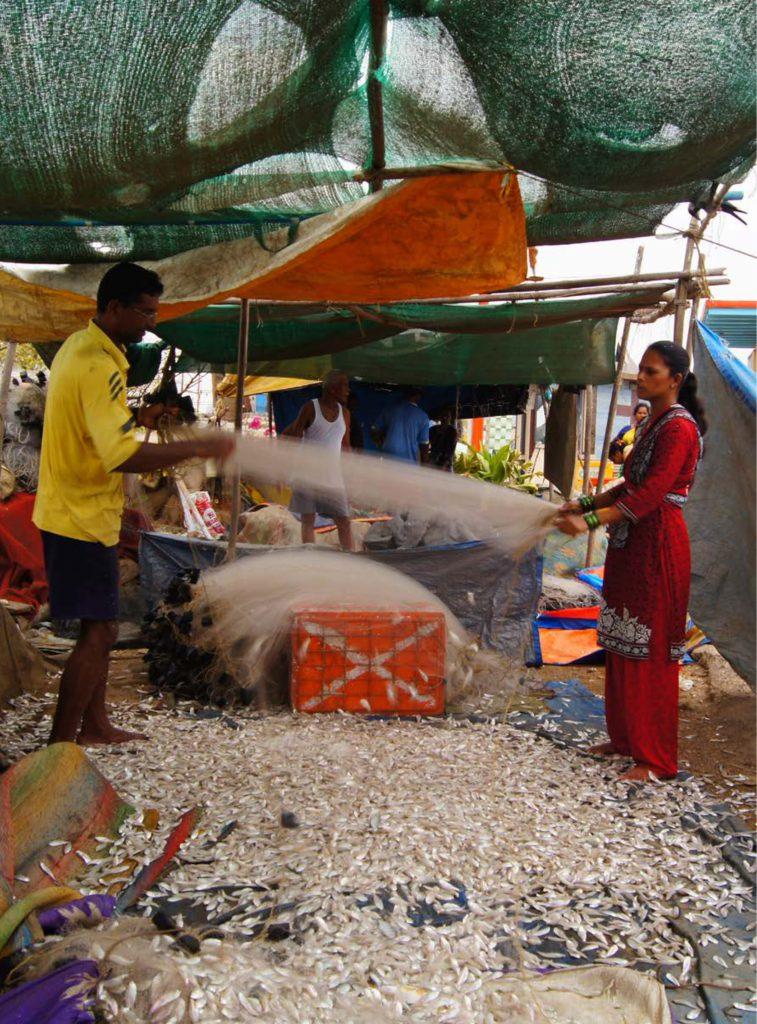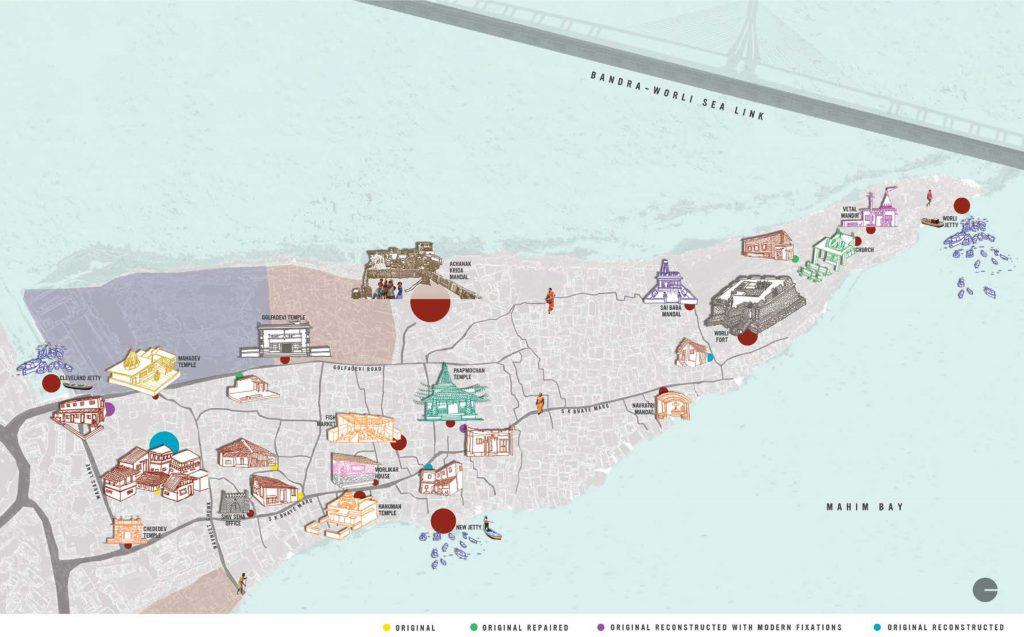the spirit of worli koliwada
Much has been eulogized about Mumbai’s original fishing villages and the undisputed significance of the Kolis in carving an indigenous thread within the city’s multicultural fabric. Such indigenous societies have traditionally imbibed a deep understanding and respect for nature, giving rise to organic and sustainable cultural practices that synchronize with natural cycles. This culture-nature integration was what made life, livelihoods, celebrations, faith and beliefs in Koliwada, a tight-knit and sustainable whole. However, in today’s context of fast-paced change, urbanization, and shifting value systems, this finely tuned tie is rapidly severing. This then threatens to corrode (erode) collective, community practices.
The Kolis, as an indigenous sea faring community, exemplify the culture-nature connect – their heart and soul lies in fishing. It brings out their entrepreneurial spirit and binds them close to their most sacred resource – the sea. However, with over 30,000 inhabitants of which only 20% of Koli descent remain, Worli Koliwada today has a mixed, lower-middle income demographic with a changing character – diversified livelihoods, migration and a degrading urban landscape.
Over the years the infiltration of so many external players has sadly turned the community into an inward-looking geography, turning their backs to the sea, with the shoreline becoming a neglected ‘no-man’s land and targeted site for the intensified recurrence of open defecation and improper waste disposal, posing health and other environmental hazards while polluting the sea. This has dampened the spirit to continue fishing activity in Worli Koliwada, with Kolis now having to resort to alternative livelihoods. Forgotten in these urban challenges is the 18th century Worli Fort, a former British military outpost, that harks back to the days of maritime trade and warfare – a cultural landmark to be preserved.
Yet at the heart of the settlement are its enterprising and resilient people – who have tided over decades of threat, to their land and seas, by various vested interests and continue to remain a force to reckon with. With the advent of the Bandra-Worli Sealink, Worli Koliwada and its inhabitants have once again found a place in the public eye as an integral part of the urban gateway into South Mumbai. That the Worli Koliwada by its strategic location foregrounds this emergent skyline, is both ironic and opportune. There is collective merit in restoring its image, identity and culture as a key step towards community empowerment, development and sustainability – thus, catalyzing a robust future for the Koliwada, a pivotal urban asset for Mumbai.


At G5A cityLAB, we help develop participatory and inclusive processes and systemic solutions to make our cities more liveable. There is a clear alignment between the inherent qualities of this urban village and G5A cityLAB’s community development pathway. Worli Koliwada hence becomes a natural choice and pilot site to devise and demonstrate our livability model for Mumbai and its urban communities. Our pilot project Swachh Worli Koliwada aims to create a model that is scalable and replicable and builds a livable and resilient neighborhood, community and city.
–
We’re always looking for volunteers and partners to collaborate with
please write to us
